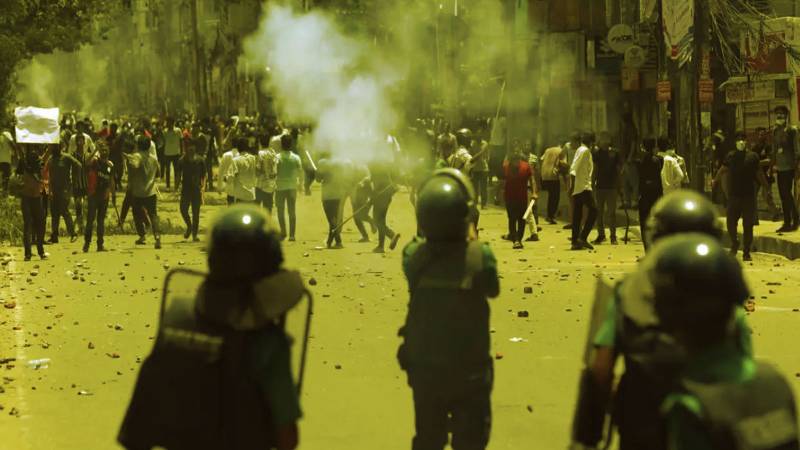
Bangladesh declared on Friday the imposition of a curfew and the deployment of military forces after police failed to stop days of violent unrest throughout the country.
This week's skirmishes between student protestors and police have killed at least 105 people, according to an AFP count of deaths recorded by hospitals, and present a significant threat to Prime Minister Sheikh Hasina's authoritarian regime after 15 years in power.
"The government has decided to impose a curfew and deploy the military in aid of civilian authorities," Hasina's press secretary, Nayeemul Islam Khan, told AFP.
He stated that the curfew would go into force immediately.
Meanwhile, the situation has caused Prime Minister Hasina to cancel her international visits.
In an effort to prevent further bloodshed, police in the capital, Dhaka, banned any public meetings for the day—a first since the demonstrations began.
"We've banned all rallies, processions, and public gatherings in Dhaka today," police chief Habibur Rahman told AFP, adding that the action was required to safeguard "public safety."
Despite an internet block intended to make rally planning more difficult, another round of conflicts between police and demonstrators erupted in the vast megacity of 20 million people.
"Our protest will continue," Sarwar Tushar, who participated in a march in the capital and suffered minor injuries when it was forcibly dispersed by police, told AFP.
We demand Sheikh Hasina's immediate resignation. The government is responsible for the killings."
A police officer told AFP on condition of anonymity that student demonstrators attacked a prison in the central Bangladeshi district of Narsingdi and liberated the inmates before setting fire to the prison's building.
"I don't know the number of inmates, but it would be in the hundreds," he explained.
